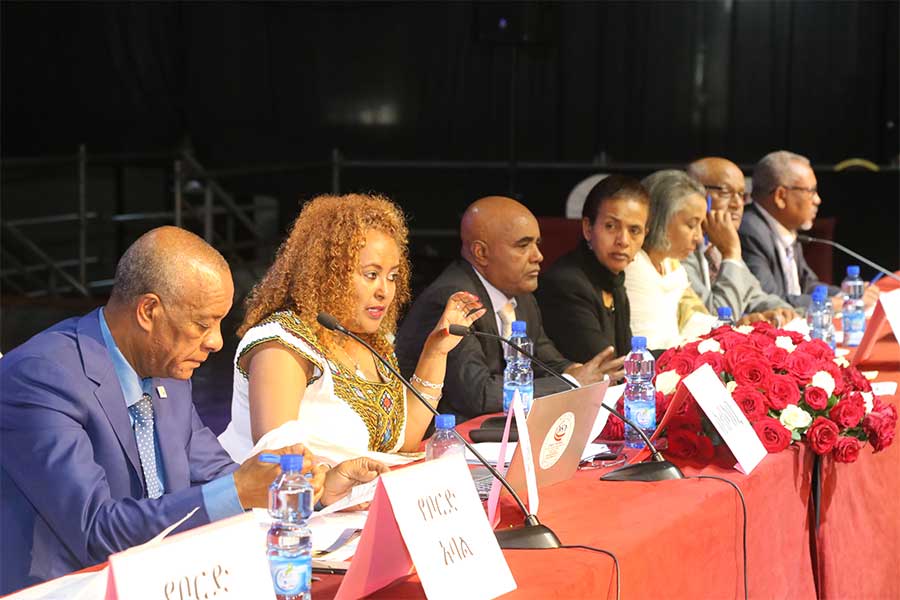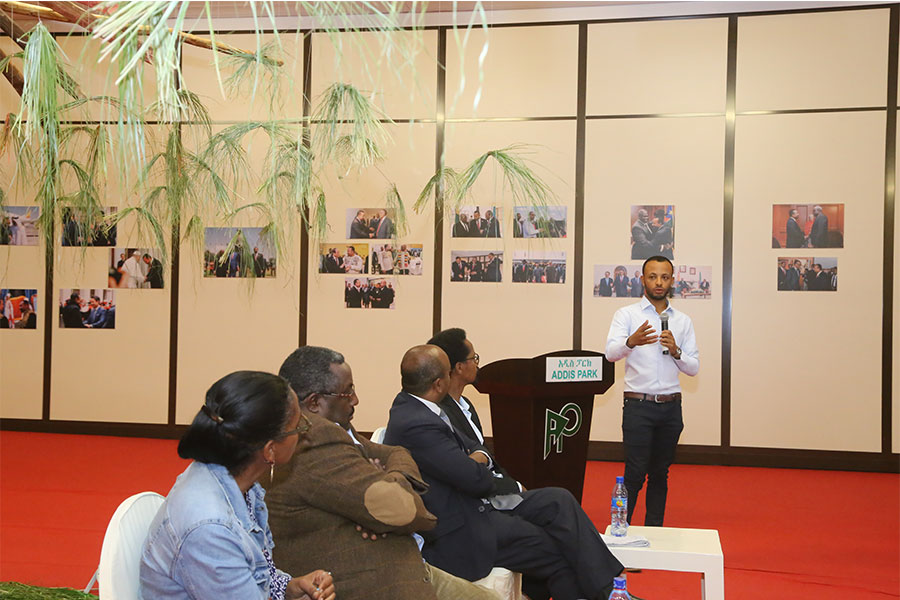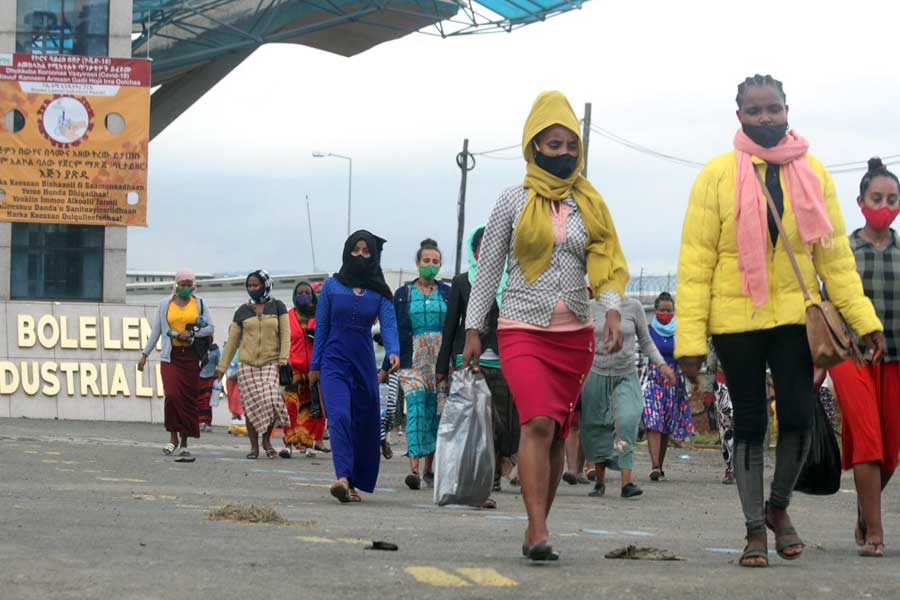
Viewpoints | Jan 18,2019
Jan 3 , 2021
By Christian Tesfaye
Few things are more dangerous than a media blackout. We found this out the hard way following the military engagement between the federal and regional governments' forces.
All suddenly went silent on November 4, 2020. Phone lines and internet connections were lost to the region, except to a few that were apparently using satellite phones. The federal government was adamant that it did not cut communication to the region.
A vacuum of information, nonetheless, does not stay long. The imagination feels the space. Rumours, hearsay and downright misinformation abounded. It got to a point where every piece of information was being thrown into the back of our minds, awaiting further confirmation. On many issues, indeed, it is likely that we will never know what happened.
Social media coped by echoing the most partisan and extreme issues related to the armed conflict. What mattered was shock factor, and there was a race to the bottom in that regard. Most foreign press, unable to travel or get into contact with individuals in affected places (with few exceptions), based much of their reporting on the witness accounts of individuals who fled the conflict.
State media had the most access to the region, but their reporting was considered largely pro-government and illuminating only to a point. It was valuable though in following the advances being made by the National Defence Forces throughout the conflict.
The problem is compounded more by the unprecedented advances being made in the technological sphere. Photos and videos are becoming easier to fake and harder to detect. This is not new to Ethiopia, where fake photos have been used to create misinformation. It is also not unique to Africa, where such videos and photos proliferate during times emotions are high, such as elections.
It should be a matter of surprise then that in a world where our eyes and ears could easily be deceived, trust in institutions is also declining. This is a global phenomenon, detectable, especially within countries where democratic institutions used to be perceived as independent.
It comes when they are more critical than ever to decipher between what is real, and what is fake. Their significance cannot be understated, especially considering what we are currently up against.
The primary line of defence used to be citizens themselves. Fake photos are not new, not by a long shot. The first manipulated photo was probably produced by Hippolyte Bayard in 1840 when he made a photo that portrayed him as drowned. Autocratic governments have long engaged in this, including infamously during the Stalinist period of the Soviet Union as all records of Trotsky were being purged.
But before, there were significant challenges related to the capability to fake something visual. The cost was high, especially considering the heightened risk of being discovered. Adding to this, the dissemination of information was not as flexible and easy. There was no internet for much of photographic and video history.
Now, the cost is getting ever cheaper while the means of dissemination gets ever easier. It is not a time-consuming process. Whenever there is some trouble or controversy, many users – personally or organised - at once get to faking a piece of visual content designed to incense emotions.
When we can no longer trust our eyes and ears, it is immensely necessary that we have institutions that are empowered to sift through the evidence to tell us what is real. This is what we do every time there is something we cannot accomplish personally or even in small groups. We outsource to institutions, as we do with law enforcement or healthcare.
In this case, it is the media. More now than ever, the media is not just a gatekeeper of democracy but political stability as well – perhaps even our sense of sanity. In the absence of institutions that can ascertain facts and decipher rumours and gossip, we are sure to head toward society's downfall.
PUBLISHED ON
Jan 03,2021 [ VOL
21 , NO
1079]


Viewpoints | Jan 18,2019

Viewpoints | Jun 04,2022

Life Matters | Apr 17,2021

Viewpoints | Jan 26,2019

Fortune News | Dec 21,2019

Radar | Apr 06,2019

Life Matters | Nov 26,2022

Fortune News | Jun 07,2020

Agenda | Aug 01,2020

Sunday with Eden | Jun 13,2020

My Opinion | 131981 Views | Aug 14,2021

My Opinion | 128369 Views | Aug 21,2021

My Opinion | 126307 Views | Sep 10,2021

My Opinion | 123925 Views | Aug 07,2021

Dec 22 , 2024 . By TIZITA SHEWAFERAW
Charged with transforming colossal state-owned enterprises into modern and competitiv...

Aug 18 , 2024 . By AKSAH ITALO
Although predictable Yonas Zerihun's job in the ride-hailing service is not immune to...

Jul 28 , 2024 . By TIZITA SHEWAFERAW
Unhabitual, perhaps too many, Samuel Gebreyohannes, 38, used to occasionally enjoy a couple of beers at breakfast. However, he recently swit...

Jul 13 , 2024 . By AKSAH ITALO
Investors who rely on tractors, trucks, and field vehicles for commuting, transporting commodities, and f...

Jul 5 , 2025
Six years ago, Ethiopia was the darling of international liberal commentators. A year...

Jun 28 , 2025
Meseret Damtie, the assertive auditor general, has never been shy about naming names...

Jun 21 , 2025
A well-worn adage says, “Budget is not destiny, but it is direction.” Examining t...

Jun 14 , 2025
Yet again, the Horn of Africa is bracing for trouble. A region already frayed by wars...

Jul 6 , 2025 . By BEZAWIT HULUAGER
The federal legislature gave Prime Minister Abiy Ahmed (PhD) what he wanted: a 1.9 tr...

Jul 6 , 2025 . By YITBAREK GETACHEW
In a city rising skyward at breakneck speed, a reckoning has arrived. Authorities in...

Jul 6 , 2025 . By NAHOM AYELE
A landmark directive from the Ministry of Finance signals a paradigm shift in the cou...

Jul 6 , 2025 . By NAHOM AYELE
Awash Bank has announced plans to establish a dedicated investment banking subsidiary...